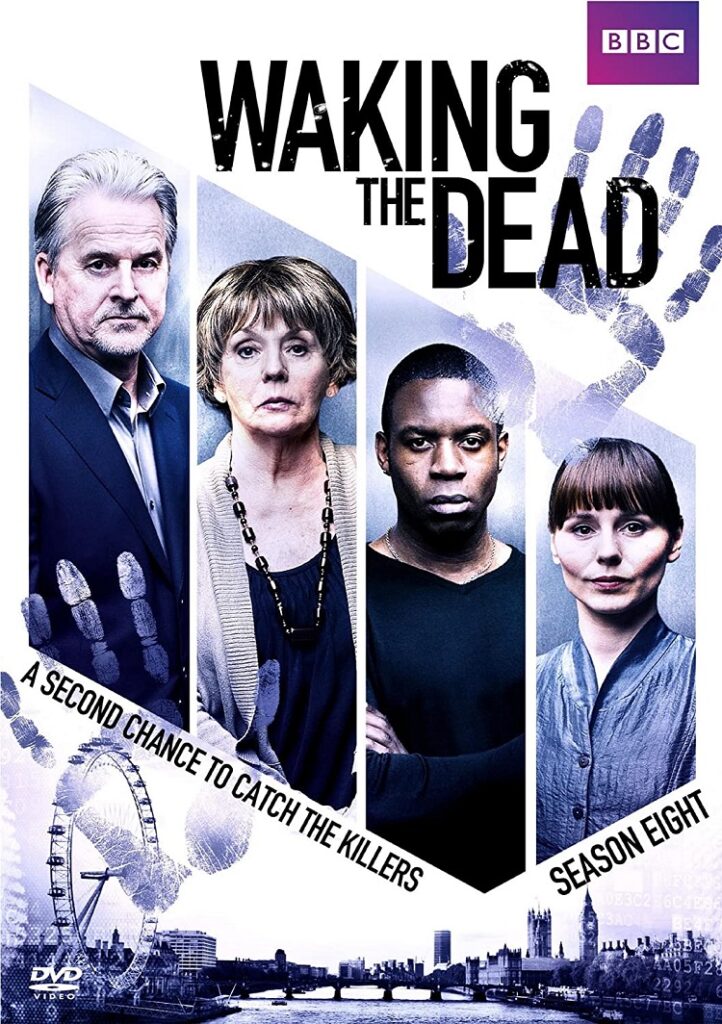
An advantage many British shows have over American television is that they usually have far fewer episodes. A show will typically (though not universally) have around six episodes in a series (the British using the word “series” the way American television uses “seasons”) and there will sometimes be a few years gap between series. Ostensibly, this means that there is more creative impetus behind the episodes – that more television exists because there were good ideas for it, and not just because they didn’t manage to get canceled the previous year.
But this is not universally the case, and even decent shows in this more relaxed production environment can grow too long in the tooth. Waking the Dead, here in its eighth series, is one such show. Waking the Dead follows a crack cold-case squad, following up on crimes that other units have found unsolvable. From the beginning, the show has intermingled its police work with the personal lives of its squad, particularly the team’s leader Peter Boyd, ably if somewhat inconsistently played by Trevor Eve, as a hard-charger who cares more about results than following the rules. His team includes a psychologist, Grace (played by Sue Johnston and consistently the most real and interesting element of the show) a forensic pathologist, and a couple of detectives who do the hard work of following cold leads.
Except they do not really follow cold leads. Every episode in this season involves fresh new tips that rather randomly come to the squad’s attention, sometimes because of incredible coincidences, sometimes because of impossible technology – DNA tests are instantaneous in this world. Waking the Dead is part of the CSI-style wave of shows that focus less on police interviews and hitting the pavement and more on people in lab coats typing things into computers, and running into rooms saying, “You’ve got to take a look at this.” Which is not to say Waking the Dead was necessarily influenced by CSI – its pilot debuted one month earlier and an entire ocean away.
It also follows suit with CSI’s graphic post-mortem grotesqueries. A corpse in the first episode of this series is as grotesque and disturbing as anything in a horror film, and displayed on screen an almost gratuitous amount of time. But gratuitous grossness is the least of series eight’s sins.
The attraction of the forensic cop show is to demonstrate how meticulousness and intellectual vigilance can overcome the brutality of criminals. This tends to make the cops, the ones doing the forensics, a little bloodless, so to combat that Waking the Dead piles on heaps and heaps of lurid melodrama. Within these eight episodes (which amount to four stories, as each story is told out over two hour-long episodes) there are evil nuns, medieval poetry-spouting rapists, an insipid female-Hannibal Lecter-a-like with plans so circuitous and intricate they would require a team of thousands to pull off, and a Slavic doctor who has literal hydro-phobia – when water touches his skin, he goes it a weird, near epileptic fit. It looks as stupid as it sounds.
Accompanying these wild swings in the plausibility (and sheer enjoyability) of the stories is a generally over-wrought style of filming. Flashbacks and quick cuts are thrown in as much, it seems, to confuse as to illuminate the story. From the stories to the filmmaking to the wild coincidences that make the investigators personally involved in what, by the premise of the show, have to be cold, old, no-longer-urgent cases, everything in this series of Waking the Dead smacks of trying too damn hard.
Of the four stories, only the second, “End of the Night” gets the mix of personal melodrama and cop-show heroics anywhere near right. A woman, who ten years ago suffered a rape and attempted murder, as well as the death of her brother at the hand of the rapists, tries to commit suicide. Her note is just Peter Boyd’s card, with the words “find them” written on it. Her suicide attempt fails, but it’s enough to get Peter Boyd to do one more push, to sift through the old evidence (however exasperated his team is at going over the same old ground) until they find something new. Eventually, they do, and with a little illegal b&e from Boyd, they get some names and come close to an actual break in the case.
But even this story can’t help but lay it on too thick. The “shocking” finale where the victim decides to take the law into her own hands depends on too many coincidences, including an incredibly implausible scenario where the cold case unit is essentially shut down, right in front of the victim, with Peter Boyd as much as telling her the man they were minutes from arresting was going to have to be let go. It’s forced, just a trick to make the ending possible (and, in an example of the show’s irritating and inconsistent attitude toward continuity, this shut down is never mentioned again, and has no long-reaching consequences.)
Waking the Dead‘s problem, in its eighth series, is just that it has gone on too long. The stories it is telling are shoe-horned, badly, into the show’s premise. They feel not like interesting twists but desperate attempts to have something, anything to put on the screen. The look, in short, like what most American shows look like in their latter seasons – underthought, overdone, and more than a little dumb.